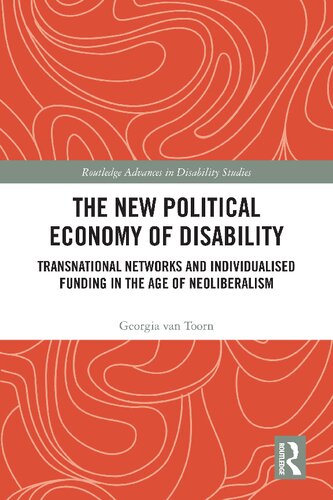

Most ebook files are in PDF format, so you can easily read them using various software such as Foxit Reader or directly on the Google Chrome browser.
Some ebook files are released by publishers in other formats such as .awz, .mobi, .epub, .fb2, etc. You may need to install specific software to read these formats on mobile/PC, such as Calibre.
Please read the tutorial at this link. https://ebooknice.com/page/post?id=faq
We offer FREE conversion to the popular formats you request; however, this may take some time. Therefore, right after payment, please email us, and we will try to provide the service as quickly as possible.
For some exceptional file formats or broken links (if any), please refrain from opening any disputes. Instead, email us first, and we will try to assist within a maximum of 6 hours.
EbookNice Team

Status:
Available5.0
21 reviewsThis book addresses the ways in which individualised, market-based models of disability support provision have been mobilised in and across different countries through cross-national investigation of individualised funding (IF) as an object of neoliberal policy mobility.
Combining rich theoretical and interdisciplinary perspectives with extensive empirical research, the book provides a timely examination of the policy processes and mechanisms driving the spread of IF amongst countries at the forefront of disability policy reform. It is argued that IF’s mobility is not attributable to neoliberalism alone but to the complex intersections between neoliberal and emancipatory agendas and to the transnational networks that have blended the two agendas in new ways in different institutional contexts. The book shows how disability rights struggles have synchronised with neoliberal agendas, which explains IF’s propensity to move and mutate between different jurisdictions. Featuring first-hand accounts of the activists and advocates engaged in these struggles, the book illuminates the consequences and risks of the dangerous liaisons and political trade-offs that seemed necessary to get individualised funding on the policy agenda for disabled people.
It will be of interest to all scholars and students working in disability studies, social policy, sociology and political science more generally.